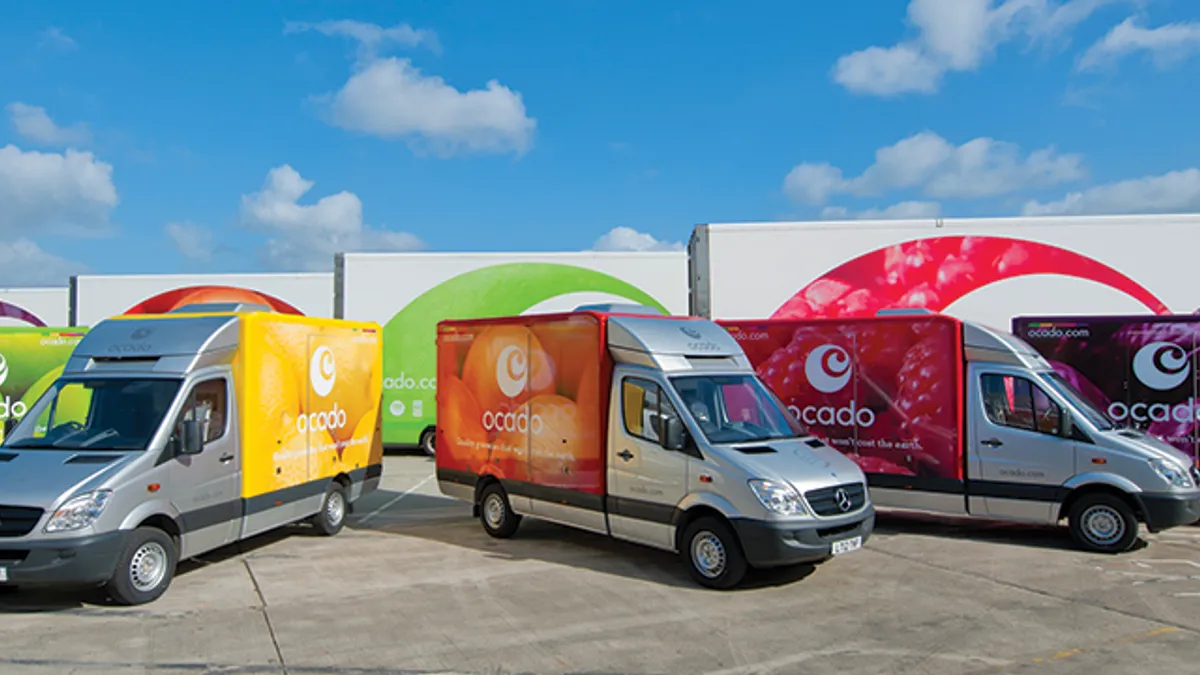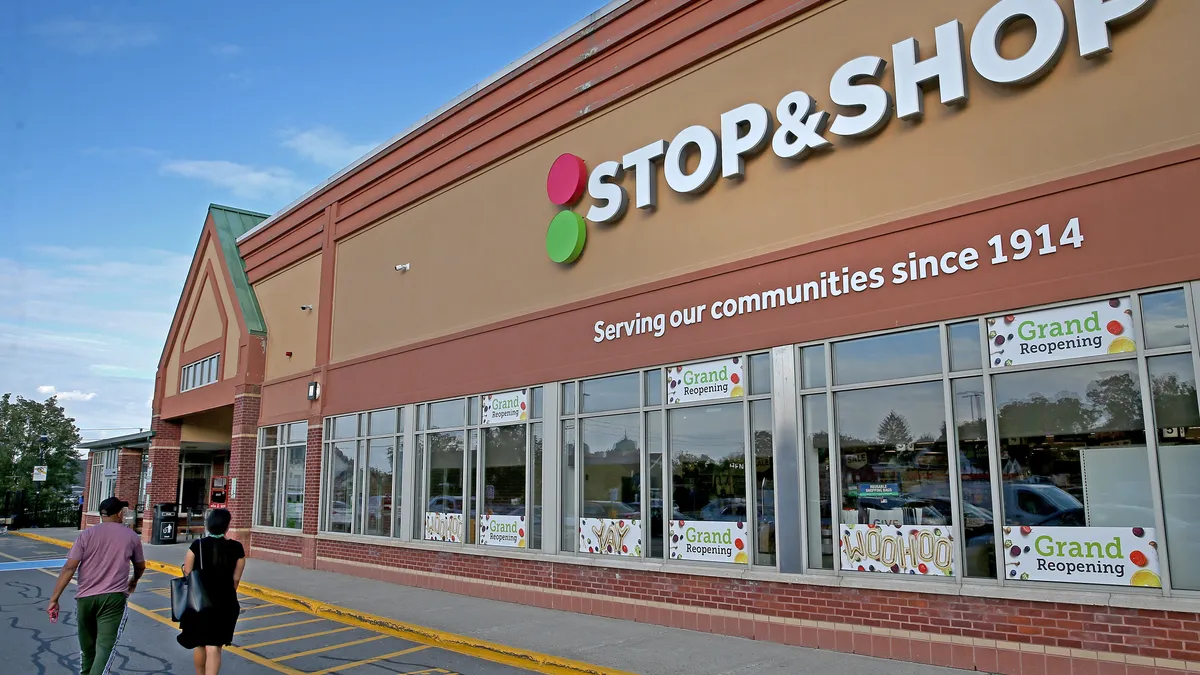Dive Brief:
- Ocado is finally coming to North America. But instead of partnering with a U.S. grocer, as has long been thought, the high-tech online grocery company has joined with Sobeys in Canada to offer its end-to-end grocery fulfillment platform.
- Ocado will license its "Smart Platform" system to Sobeys, which includes an ordering website, state-of-the-art fulfillment warehouse, and routing technology optimized for efficient delivery. The fulfillment warehouse, which lays out products in a grid and uses robots to pick and pack orders, will be built over the next two years in Toronto, with the possibility of other facilities being built in urban areas throughout Canada.
- Founded by three former Goldman Sachs traders in 2000, Ocado has become a leader in online grocery in its native England, but has been slow to expand outside the country. In November, it finally announced its first deal abroad, with French supermarket chain Group Casino. Reports linked Ocado with Publix back in 2014, but a deal never materialized. Ocado has maintained it is interested in partnering with an American supermarket.
Dive Insight:
Ocado built a reputation for running a profitable, efficient online grocery operation in England. It's a pure-play e-grocer that has also partnered with supermarkets Waitrose and Morrisons to offer ordering and fulfillment services in markets throughout the country. Since going public in 2010, Ocado has stated its intention to go abroad, but it couldn't forge a deal until November of last year, when it linked up with French supermarket chain Group Casino.
The Sobeys arrangement marks Ocado's second international move in as many months, and it could signal that the company is ready to move aggressively to challenge high-tech rival Amazon.
As the leading online grocery provider in a country where online grocery is much further along than the U.S. — more than 7% of grocery purchases in the U.K. happen online, compared to less than 4% in the U.S. — Ocado offers a tantalizing glimpse of the future for North American retailers. It relies on high-tech warehouses — including an army of robot pickers speeding above product containers laid out in a grid — to fulfill orders, and it connects with consumers via its custom website and optimized order delivery system.
Experts call Ocado's logistical abilities in grocery unparalleled, and point out that the company also has data-mining capabilities that are on par — or even better than — Amazon.
"Ocado is actually more advanced than Amazon," Brett Barakett, CEO of hedge fund Tremblant Capital told Bloomberg Markets in an interview last year.
That's an enticing prospect for North American retailers facing down the prospect of Amazon's growth in their industry via its online channels and newly acquired Whole Foods stores. Sobeys certainly had this in mind when they agreed to partner with Ocado. "We want to be the other player. The grocer that is competing with [Amazon] head on," a Sobeys spokeswoman told various news outlets.
What does this mean for the U.S.? Big things, potentially. So far, Instacart has taken a commanding early lead in online grocery fulfillment with American retailers. But experts interviewed by Food Dive, including Bill Bishop of Brick Meets Click and Keith Anderson of Profitero, say Instacart's store-focused fulfillment model isn't scalable for delivery. As orders increase, out-of-stocks do too, and designated shoppers begin to disrupt the store experience. Also, stores are not optimized for online order gathering, while Ocado's warehouses are.
Experts maintain that shoppers currently prefer store pickup, which bodes well for Walmart, Kroger and other retailers focused on this model. But research shows that the number of orders for home delivery and so-called click and collect are evenly split. A recent study from Packaged Facts found that 31% of online shoppers it surveyed get their groceries via same-day delivery versus 33% who regularly pick up at their store. Consumer attitudes are certain to change as they become more comfortable with online ordering, and home delivery is on track to become a big business.
Some grocers, like Hy-Vee and Walmart, are actively building fulfillment centers, and others may need to go that route if they want online sales to become a significant portion of their business. As Amazon continues to evolve, and grocery e-commerce along with it, supermarkets will need to expand and evolve their fulfillment models. Ocado could very well be a solution for them — and a potential pure-play option in the U.S. market, as well.










